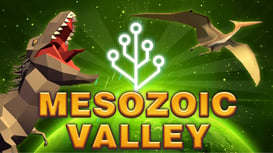Simulation Games
Discover and play the best simulation games online
Found 50 Simulation games
Simulation Games at Sprunki Game
Virtual Worlds in Simulation Games
Experience realistic environments in our simulation games with detailed physics and authentic interactions
Simulation Games Resource Management
Master complex systems in engaging simulation games with deep economic and resource mechanics
Realistic Simulation Games Decisions
Make meaningful choices in simulation games that have lasting impacts on your virtual world
Simulation Games Features
Simulation Games Management Systems
Control and optimize complex systems in simulation games with intuitive interfaces and detailed feedback
Dynamic Simulation Games Events
React to changing scenarios and unexpected challenges in our simulation games for a constantly fresh experience
Simulation Games Progress Tracking
Monitor your success in detailed simulation games with comprehensive statistics and achievement systems
Interactive Simulation Games Characters
Engage with realistic characters and NPCs in simulation games that respond to your actions and decisions
Simulation Games Economic Systems
Manage complex resources and economic models in simulation games with realistic market dynamics
Realistic Simulation Games Controls
Experience intuitive and responsive controls in our simulation games for seamless gameplay
How To Play Simulation Games
Choose Your Simulation Games Experience
Select from various types of simulation games that match your interests, from life simulation games to business simulation games
Learn Simulation Games Systems
Understand the mechanics and rules of your chosen simulation game through helpful tutorials and guidance
Set Simulation Games Goals
Define your personal objectives and achievements in the simulation games world to guide your gameplay
Master Simulation Games Resources
Balance and optimize resources in your simulation game to achieve efficiency and success
Adapt Simulation Games Strategies
Adjust your approach based on simulation game feedback and changing conditions to overcome challenges





















